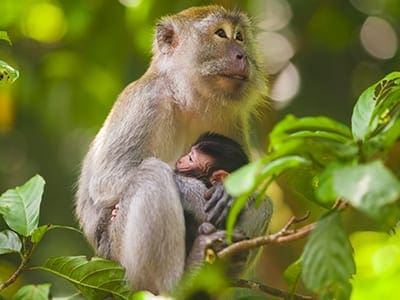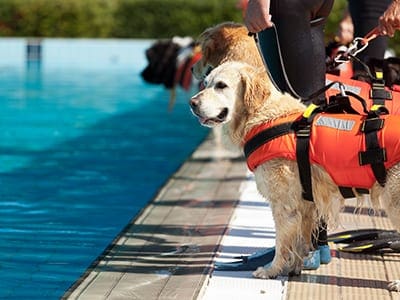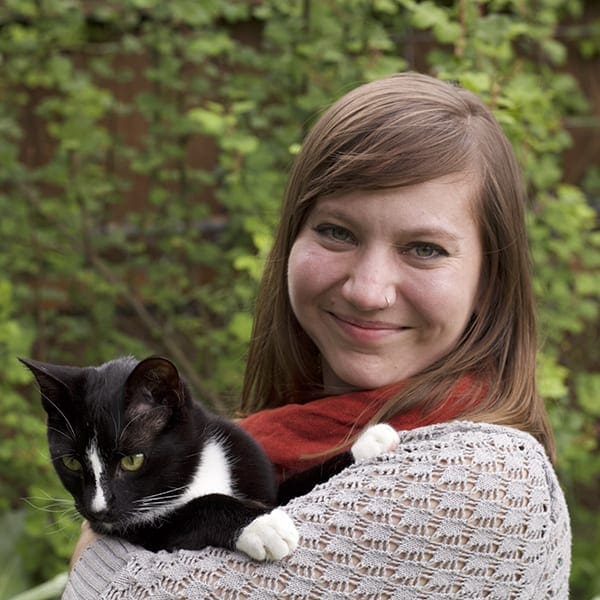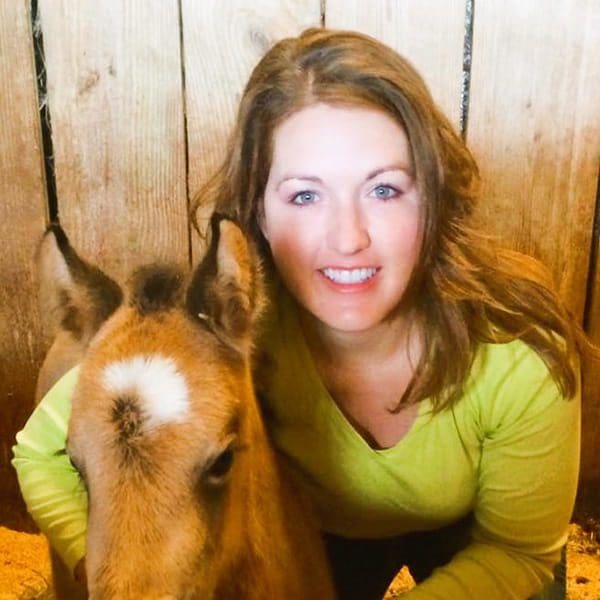
Animal Health and Behavior
Bachelor of Science
Next start date is April 8th. Applying is easy and free!
Jobs in animal care are booming.
Be a part of the next generation of experts.
Enrolling in our Animal Health and Behavior program allows you to focus on the well-being of animals but also contribute to a more sustainable and responsible animal care. In this program, you will gain in-depth knowledge on how animals think, behave, and evolve, while also exploring eco-conscious approaches to their rehabilitation, care, and health.
Animal Health and Behavior Program Overview
The B.S. in Animal Health and Behavior from Unity Environmental University prepares students for careers at zoos and aquariums, in the veterinary fields, as animal welfare officers, and for a future focused on the care and well-being of wild and captive animals around the world. This degree provides students with essential knowledge and skills for further study in veterinary medicine programs or for use in professional settings such as wild animal care or rehabilitation facilities.
Career Outlook
Earn your degree.
Unlock new opportunities.
Veterinary technologist and technician jobs in the U.S., 2018.
Median zoologist pay, 2018.
Estimated U.S. job growth for veterinary technologists and technicians through 2028.
Veterinary technologist and technician jobs in the U.S., 2018.
Median zoologist pay, 2018.
Estimated U.S. job growth for veterinary technologists and technicians through 2028.
*Source: U.S. Bureau of Labor Statistics. Unity Environmental University cannot guarantee employment. Salary data represents averaged earnings for the occupations listed and includes workers at all levels of education and experience.
Experiential and Immersive Coursework

Animal Ethogram
In the Animal Ethogram assignment, animal behavior students are asked to pick an animal they can observe, and make a list of their behaviors. If students don’t have an animal in their local environment that they feel comfortable observing, they have a list of different live streams from the Zoo to the Smithsonian, where they can choose an animal to observe. Taking the assignment further, students develop investigative questions that they will analyze through their observations.

Training & Care Handbook
Students are challenged to create a handbook that demonstrates proper techniques for both training & care of animals for a made-up organization. This project allows the students to practice their knowledge of the coursework they’ve learned throughout the term, as well as asking them to present best practices in the field.

Observation Lab Practical
Professors provide videos of themselves and other experts demonstrating different training techniques. The students are asked to study the interactions and identify what is going on during the training. Being able to observe and accurately assess the training practices will provide valuable knowledge for the students before attempting these practices on their own.
Animal Health and Behavior Degree Requirements and Courses
The Animal Health and Behavior degree requires 120 credits. You may transfer in up to 90 credits from outside institutions. For more requirements, browse our degree checklist. View our full course catalog for a better look into your program. Then apply online for free to get started.
Frequently Asked Questions
-
How much does an animal behavior major cost?
Your online education should be affordable and manageable. Our team of distance education concierges will work with you through the admissions process to help you plan and pay for your degree. Learn more about the costs here.
-
What can you do with an animal behavior degree?
With an animal behavior degree, you can pursue various exciting career paths. You can work as an animal behavior technician, animal caretaker, animal trainer, pet behavior consultant, or animal welfare advocate. You may assist in research on animal behavior, study their interactions and social dynamics, develop enrichment programs, or design behavioral interventions. Opportunities exist in zoos, aquariums, research institutions, or government agencies.
-
How fast can I finish?
Our comprehensive 120-credit program can be tailored to fit your schedule and goals! Completion time is flexible, determined by the number of credits you choose to take each term (8 terms/year) and less time with transfer credits. Without transfer credits, you can anticipate the following completion times:
- 24 credits/year: Complete in just 5 years
- 30 credits/year: Achieve your degree in 4 years
- 48 credits/year: Fast-track your education in only 2.6 years
-
How many credits can I transfer?
Apply online (it’s free!) and a distance education concierge will reach out to create an individualized plan for transferring your credits. You may also want to try estimating your transfer credits using Transferology.
-
What courses will I be taking?
For course requirements, browse our Animal Health and Behavior checklist or view our full course catalog for a better look into the animal behavior classes. Then apply online for free to get started.
- Do you have more information I can download?
Program Features
High Value Education: Nationally recognized for the quality of our programs delivered at an affordable price.
Social Mobility: Unity ranks in the top 15% of colleges in the U.S. for fostering upward mobility.
Sustainability Core: All programs are committed to sustainable practices, preparing you for a future of environmental awareness in all fields.
Flexible Learning: Balance work and education effortlessly by choosing when and where you want to study.
Flexible Start Dates: 8 start dates per year allows you to control your schedule
Personalized Guidance: Benefit from individualized academic and professional advising, where we are dedicated to turning your career and academic aspirations into tangible achievements.
Transfer-Friendly: Shorten your academic timeline, since we accept up to 90 credits to value your prior academic achievements.
Student Story
Internship at the Plumpton Park Zoo
Brooke interned at the Plumpton Park Zoo in Maryland working with exotic animals.
“The best part of the internships is being able to do them when it is convenient for me. I make my school schedule around when I am able to intern which is awesome. This way I can devote my time to working with the animals when it is needed for the facility,” Brooke explains.
Experts in the Field
At Unity Environmental University, our faculty is composed of a wide range of environmental science experts who in addition to teaching, conduct their own research and various fieldwork.

Dr. Kristyn Vitale
Assistant Professor in Animal Health and Behavior
Dr. Kristyn Vitale is a powerhouse in Animal Science and Experimental Psychology. With a Ph.D. from Oregon State University, she’s on a mission to unravel the secrets of human-animal connections. From fostering programs’ impacts on animals to cross-cultural studies on human-cat bonds (USA to Japan), her research breaks boundaries. Not just a researcher – she’s the go-to for cat, dog, and pig training expertise. Her expertise has even led her to be featured in the Netflix documentary “Inside the Minds of a Cat”. Join her in the cutting edge of animal behavior research where every class is a dive into the latest data and best practices. Your journey into the dynamic world of animal behavior starts here!
Faculty Profiles
Seek out knowledge.
Learn from leaders.
Last Updated on April 1, 2024















